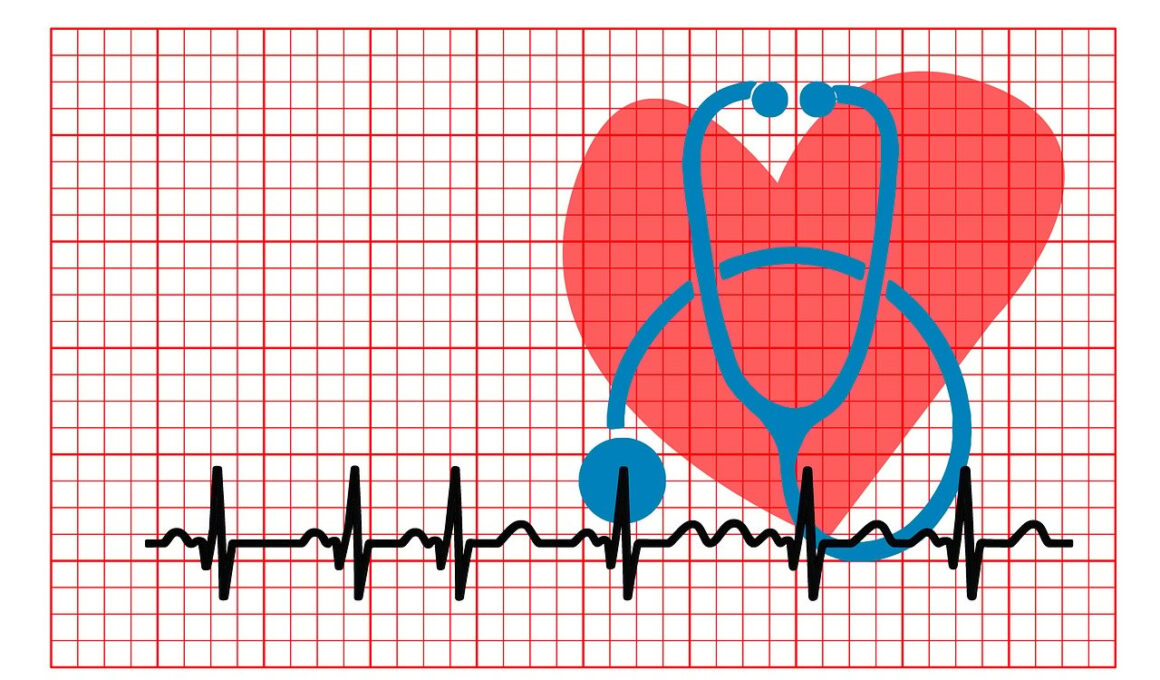Understanding Stress and Its Impact on Men’s Health
Stress is a common experience for many men, significantly affecting their overall health and well-being. It is essential to understand what stress is and how it could impact various aspects of life, especially for men. Stress can be defined as a physical reaction to emotional or mental pressure. This response can lead to several health issues, including heart disease, high blood pressure, and anxiety disorders. Men usually experience stress due to work-related pressures, family responsibilities, and changing social expectations. It is crucial to recognize stress triggers and address them to maintain a healthy lifestyle.Managing stress effectively can lead to improved mental clarity, better relationships, and enhanced physical health. Understanding healthy coping strategies, such as regular physical activity, proper nutrition, and social support, is vital. Acknowledging the need for adequate rest and relaxation is equally important. Engaging in stress-reducing activities helps in developing resilience against life’s challenges, making it easier to cope with stress when it arises. Seeking professional help when necessary is also essential, as mental health support can significantly aid in stress management.
The Biological Effects of Stress
Stress triggers several biological mechanisms within the body, creating a physiological response that can profoundly impact health. The body reacts to stress by releasing hormones like adrenaline and cortisol, which prepare the body for a ‘fight or flight’ reaction. While this response can be beneficial in short bursts, prolonged exposure to stress hormones can lead to adverse effects. Over time, chronic stress may contribute to various health problems, such as heart disease and depression. Additionally, high cortisol levels can result in reduced immune function, making individuals more susceptible to illnesses. It can also lead to changes in metabolism and increased cravings for unhealthy foods, contributing to weight gain. Furthermore, chronic stress is associated with sleeping disorders, which further complicate health conditions. Understanding these biological effects underscores the importance of stress management techniques, including mindfulness and relaxation exercises, which help reduce stress hormone levels. Implementing practices such as meditation, yoga, or deep breathing can significantly improve overall health. By managing these physiological effects, men can develop a more balanced and healthy lifestyle, leading to increased quality of life and longevity.
When it comes to stress management for men, lifestyle choices play a pivotal role. Incorporating regular exercise into daily routines has profound benefits for alleviating stress. Physical activity releases endorphins, often referred to as “feel-good hormones,” which help improve mood and reduce stress levels. Engaging in activities such as running, swimming, or weight training can also create opportunities for social interaction, further decreasing feelings of isolation and stress. Men are encouraged to explore various forms of exercise that they enjoy, as having fun during workouts can keep them motivated. Moreover, a balanced diet is crucial, as certain foods can either exacerbate or alleviate stress. Consuming a diet rich in fruits, vegetables, whole grains, and lean proteins can positively affect mood and energy levels. Conversely, excessive caffeine and sugar can lead to increased anxiety and stress. Mental well-being should also not be overlooked; practicing self-care and taking breaks from stressful environments are essential. Sharing problems with trusted friends or family can alleviate burdens, and developing strong social connections can provide the emotional support needed during challenging times.
Coping Strategies for Stress
Effective coping strategies are essential for managing stress and promoting a healthier lifestyle. Men can adopt several techniques that can mitigate stress and enhance their resilience. One popular approach is mindfulness meditation, where individuals focus on the present moment without judgment. This practice has been shown to reduce stress and improve mental clarity by fostering a sense of calm. Deep-breathing exercises also play a significant role in managing stress; they can be done anywhere and help regulate heart rate and breathing patterns. Another effective strategy is engaging in hobbies or activities that bring joy and relaxation, such as painting, gardening, or playing a musical instrument. Maintaining a well-structured daily routine can also help create a sense of predictability. Being organized can prevent the feelings of overwhelm that often accompany a busy lifestyle. Furthermore, setting clear, achievable goals can provide a sense of purpose and direction, reducing anxiety. Ultimately, finding a personalized combination of these strategies can empower men to combat stress effectively while encouraging healthier lifestyle habits and improved well-being in the long run.
It is important to understand that seeking help is not a sign of weakness, but rather a strong step towards personal growth. Many men may face societal pressures that make them reluctant to open up about their stress and mental health issues. Seeking counseling or therapy can provide valuable perspective and coping strategies, helping to build resilience over time. Support groups specifically geared toward men can also offer a safe space to share experiences and learn from others facing similar challenges. Mental health professionals can help identify patterns of thought and behavior that contribute to stress, providing tools to change these issues effectively. Additionally, psychoeducation can enhance awareness of the impact of stress on both physical and mental health. The importance of regular check-ins with a healthcare provider cannot be emphasized enough, as it allows men to be proactive about their health. Issues can be detected early through routine health assessments, ensuring timely intervention when needed. Encouraging conversations about stress and mental health within social circles can foster a supportive community that benefits everyone involved. This collective understanding may ultimately lead to healthier outcomes.
Promoting a Balanced Lifestyle
To combat stress effectively, men must promote a balanced lifestyle that incorporates various elements of physical, mental, and emotional well-being. Prioritizing sleep is fundamental, as quality rest is essential for recovery and stress management. Establishing a regular sleep schedule can significantly improve overall mood and cognitive function. It is recommended to avoid stimulants like caffeine close to bedtime and create a comfortable sleeping environment. In addition to sleep, maintaining a balanced diet rich in nutrients can protect against stress-related health issues. Consuming whole foods, such as fruits and vegetables, lean proteins, and healthy fats, supports energy levels and minimizes mood swings. Furthermore, making time for leisure activities and relaxation is crucial for recovery. Activities, such as reading, taking walks in nature, or engaging in creative pursuits, can replenish energy and foster a sense of joy. Continuous learning and skill development also contribute to a more fulfilling life. As men strive for balance, they will witness improvements in resilience, sharper focus, and a heightened ability to face life’s challenges. Ultimately, a balanced lifestyle leads to enhanced health and well-being.
In conclusion, understanding stress and its impact on men’s health is vital for promoting overall well-being. By recognizing the sources of stress and learning effective coping strategies, men can cultivate resilience and healthier lifestyles. Implementing strategies such as physical activity, mindfulness practices, and proper nutrition can significantly decrease stress levels. Creating supportive social circles fosters emotional well-being and encourages open dialogue about mental health challenges. Additionally, prioritizing rest, seeking professional help when necessary, and adhering to routine health check-ups can prevent the adverse effects of chronic stress. Ultimately, everyone’s journey to stress management is unique; men must find the individual methods that work best for them. Sharing experiences with friends, participating in group activities, and maintaining a proactive attitude toward health are essential. Stress is an inevitable part of life, but having the right tools and support can make it manageable. Therefore, it is essential for men to take charge of their health, seeking balance and harmony in their lives, while focusing on effective stress management strategies. With the right approach, stress need not dictate health outcomes but can be transformed into an opportunity for personal growth.
Final Thoughts
As stress continues to impact the health of many men, understanding its effects and implementing effective coping mechanisms is essential. Stress management should be viewed as an ongoing process rather than a one-time fix. By consistently practicing healthy habits and seeking support when needed, men can create a sustainable blueprint for stress reduction. Emphasizing the importance of self-awareness and emotional intelligence helps men better understand their triggers and the impact of stress on their lives. By working to cultivate resilience, individuals are better equipped to face and overcome stressors as they arise. Stress is not solely an individual experience; it can also impact relationships with family, friends, and colleagues. Thus, fostering open communication and empathy in relationships can further mitigate stress. At the end of the day, remember that progress takes time and persistence. By forging a path focused on self-improvement, promoting balance, and nurturing connections, men can enhance their health and quality of life. Investing in oneself should take priority, enabling personal and collective growth in physical and mental well-being. Thus, men can reclaim control over their stress, building a healthier future.


